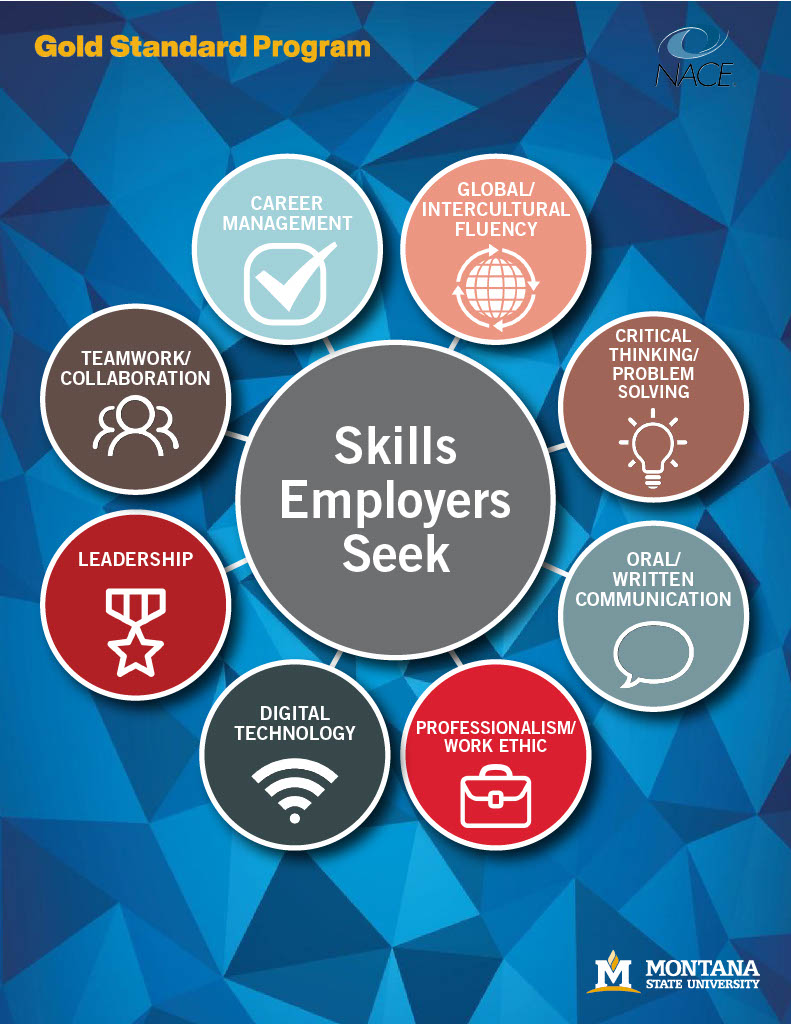What are NACE Competencies?
The National Association of Colleges and Employers (representing 13,000 employers in the United States and beyond) has developed a list of essential competencies necessary for college graduates to master to be competitive in the workplace.

Our Gold Standard representatives are committed to ensuring you develop deep competency in the following areas as you leverage this opportunity to shape your internship and career path beyond MSU.
- Critical Thinking/Problem Solving: Exercise sound reasoning to analyze issues, make decisions, and overcome problems. The individual is able to obtain, interpret, and use knowledge, facts, and data in this process, and may demonstrate originality and inventiveness.
- Oral/Written Communications: Articulate thoughts and ideas clearly and effectively in written and oral forms to persons inside and outside of the organization. The individual has public speaking skills; is able to express ideas to others; and can write/edit memos, letters, and complex technical reports clearly and effectively.
- Teamwork/Collaboration: Build collaborative relationships with colleagues and customers representing diverse cultures, races, ages, genders, religions, lifestyles, and viewpoints. The individual is able to work within a team structure, and can negotiate and manage conflict.
- Digital Technology: Leverage existing digital technologies ethically and efficiently to solve problems, complete tasks, and accomplish goals. The individual demonstrates effective adaptability to new and emerging technologies (eg. Eportfolios)
- Leadership: Leverage the strengths of others to achieve common goals, and use interpersonal skills to coach and develop others. The individual is able to assess and manage his/her emotions and those of others; use empathetic skills to guide and motivate; and organize, prioritize, and delegate work.
- Professionalism/Work Ethic: Demonstrate personal accountability and effective work habits, e.g., punctuality, working productively with others, and time workload management, and understand the impact of non-verbal communication on professional work image. The individual demonstrates integrity and ethical behavior, acts responsibly with the interests of the larger community in mind, and is able to learn from his/her mistakes.
- Career Management: Identify and articulate one's skills, strengths, knowledge, and experiences relevant to the position desired and career goals, and identify areas necessary for professional growth. The individual is able to navigate and explore job options, understands and can take the steps necessary to pursue opportunities, and understands how to self-advocate for opportunities in the workplace.
- Global/Intercultural Fluency: Value, respect, and learn from diverse cultures, races, ages, genders, sexual orientations, and religions. The individual demonstrates, openness, inclusiveness, sensitivity, and the ability to interact respectfully with all people and understand individuals’ differences.
